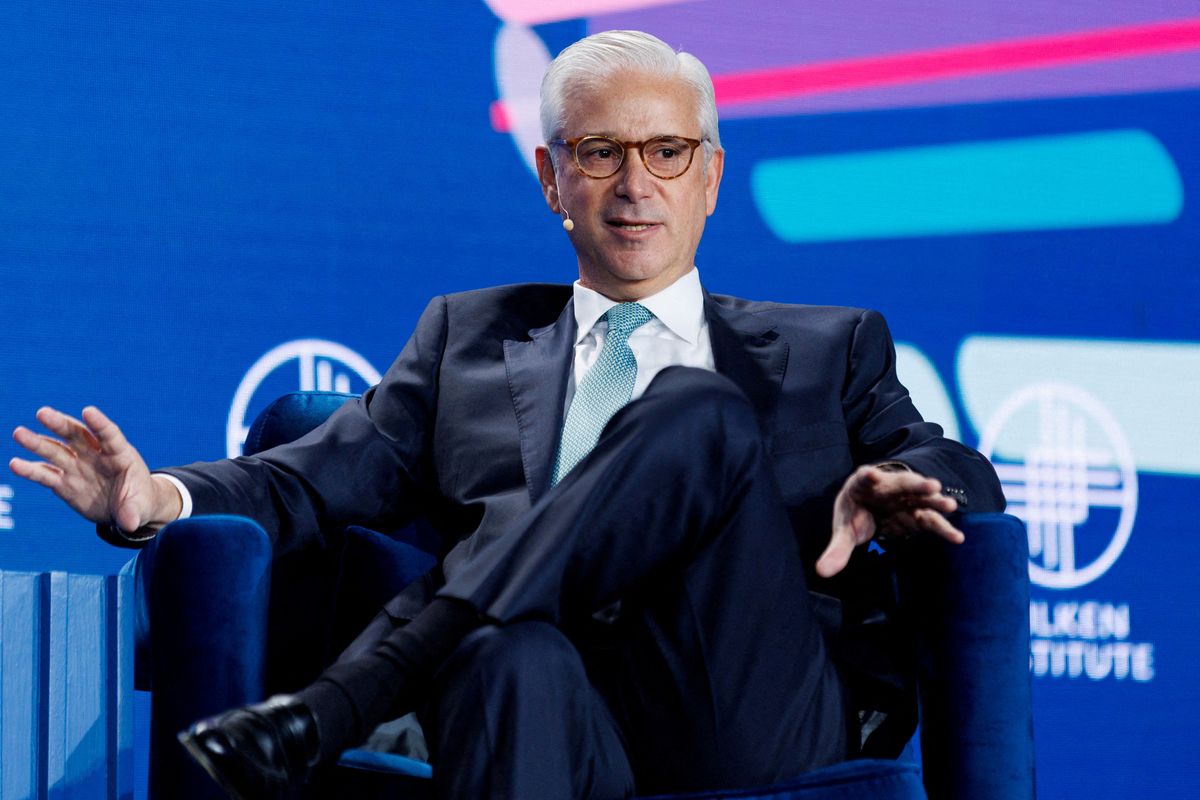Wells Fargo stuns with US$1 billion settlement in shareholders' saga
The fourth-largest US bank, Wells Fargo, has been swimming in some serious trouble over the past few years.

A few minutes every morning is all you need.
Stay up to date on the world's Headlines and Human Stories. It's fun, it's factual, it's fluff-free.
The backstory: The fourth-largest US bank, Wells Fargo, has been swimming in some serious trouble over the past few years. It's been scandal after scandal for the banking giant since 2016. Things started going downhill when regulators began investigating Wells Fargo’s business practices. And boy, did they find some dirt. For example, they discovered the bank had been opening millions of accounts without people's permission and even charging them for insurance they didn't need or want.
So, the Fed and other regulators slapped it with something called "consent orders” in 2018. Basically, these are agreements saying, "OK, you messed up, let's fix this without going to court." In other words, these enforcement actions are handed down by regulators, and the bank agrees to them. So that gave Wells Fargo a serious wake-up call. The consent orders required the bank to clean up its act, tighten its management and actively work toward fixing all these violations regulators had found, which included paying fines and paying back customers that had been wrongly charged fees.
But that's not all. The Fed also put a cap on Wells Fargo's assets in 2018. It's like going to an all-you-can-eat buffet and being told you can only take a certain amount of food. Well, in this case, it’s a restriction placed on the amount of assets (money, property or valuable stuff) Wells Fargo can have – which was set at US$1.95 trillion, its size at the end of 2017. It's a bummer for the bank because it limits the company’s growth and competitiveness compared to other big-shot banks like JPMorgan Chase and Bank of America.
More recently: In February 2020, Wells Fargo had to cough up a mind-boggling US$3 billion for its shady business practices. Basically, regulators found the bank had pressured its employees to meet unrealistic sales goals, leading them to make fake accounts for customers. Then, last year, it also got slapped with an extra US$3.7 billion fine for charging illegal fees and interest on loans, mismanaging customer payments, wrongfully repossessing cars, plus messing up big time with overdraft charges. Ouch.
That same year in June, investors decided to sue Wells Fargo, accusing it of lying about how well it was following the rules in these consent orders. They said the CEO at the time, Tim Sloan, and other top execs were telling these big fat lies all over the place – during testimonies to Congress, to investors and even to the media. Shareholders said Wells Fargo's market value ended up taking a nose-dive, plummeting a whopping US$54 billion between 2018 and 2020, and it had defrauded them about its ability to rebound from all these scandals.
Just a few days ago, the ex-big shot in charge of Wells Fargo's retail bank, Carrie Tolstedt, pleaded guilty to obstructing a bank examination back when regulators were looking into these phony accounts. If she's convicted, she could face up to 16 months in prison and a US$17 million civil penalty. Prosecutors allege she played a big role in how and why all these fake accounts were created.
The development: Now, Wells Fargo just agreed to fork over US$1 billion to end that massive lawsuit from its shareholders. You might not have guessed it, but this settlement is one of the biggest class action settlements ever in the banking industry. But the bank insisted it did nothing wrong and is settling just to avoid the headache and expense of a long legal battle.
Key comments:
“This agreement resolves a consolidated securities class action lawsuit involving the company and several former executives and a director, who have not been with the company for several years,” said a Wells Fargo spokesperson. “While we disagree with the allegations in this case, we are pleased to have resolved this matter.”
"When I arrived, we did not have the culture, effective processes, or appropriate management oversight in place to remediate weaknesses on a timely basis," said CEO Charlie Scharf to a letter to shareholders in March "Today, we approach these issues differently."
"The justice system and regulators rely on corporations and their executives to fully cooperate during investigations into potential wrongdoing. But, in this case, Ms. Tolstedt took steps to cover up misconduct at Wells Fargo," said Joseph McNally, acting US attorney for the central district of California, in a statement.
"Finally, decades after the largest fraud in American history, a banker is going to jail," said Bartlett Naylor, a financial policy advocate with Public Citizen in Washington, referring to Carrie Tolstedt pleaded guilty for obstructing a bank examination. "But Tolstedt did not operate alone; she had bosses. They must face real justice as well."




Comments ()